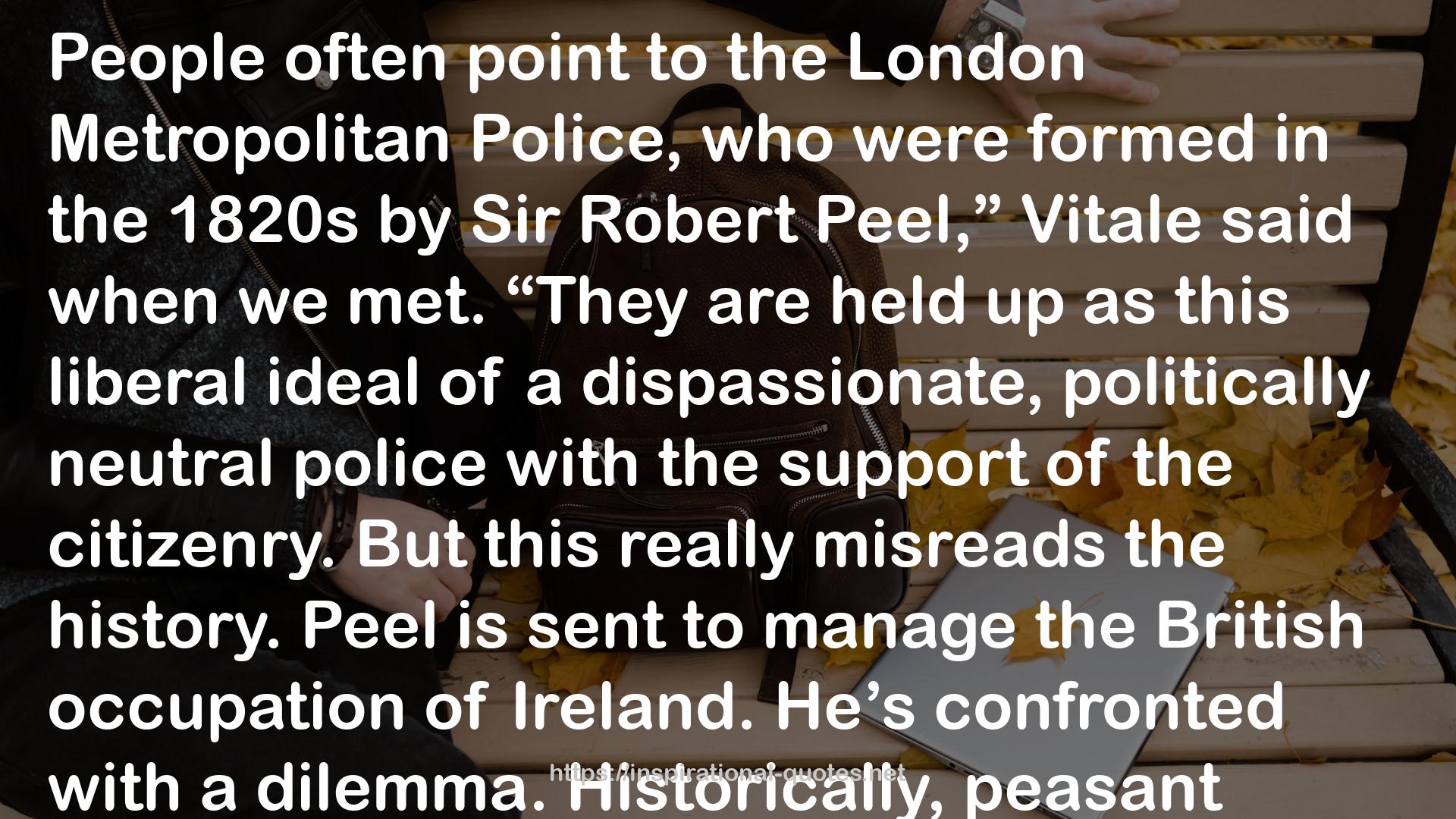" People often point to the London Metropolitan Police, who were formed in the 1820s by Sir Robert Peel,” Vitale said when we met. “They are held up as this liberal ideal of a dispassionate, politically neutral police with the support of the citizenry. But this really misreads the history. Peel is sent to manage the British occupation of Ireland. He’s confronted with a dilemma. Historically, peasant uprisings, rural outrages were dealt with by either the local militia or the British military. In the wake of the Napoleonic Wars, in the need for soldiers in other parts of the British Empire, he is having more and more difficulty managing these disorders. In addition, when he does call out the militia, they often open fire on the crowd and kill lots of people, creating martyrs and inflaming further unrest. He said, ‘I need a force that can manage these outrages without inflaming passions further.’ He developed the Peace Preservation Force, which was the first attempt to create a hybrid military-civilian force that can try to win over the population by embedding itself in the local communities, taking on some crime control functions, but its primary purpose was always to manage the occupation. He then exports that model to London as the industrial working classes are flooding the city, dealing with poverty, cycles of boom and bust in the economy, and that becomes their primary mission. “The creation of the very first state police force in the United States was the Pennsylvania State Police in 1905,” Vitale went on. “For the same reasons. It was modeled similarly on U.S. occupation forces in the Philippines. There was a back-and-forth with personnel and ideas. What happened was local police were unable to manage the coal strikes and iron strikes. . . . They needed a force that was more adherent to the interests of capital. . . . Interestingly, for these small-town police forces in a coal mining town there was sometimes sympathy. They wouldn’t open fire on the strikers. So, the state police force was created to be the strong arm for the law. Again, the direct connection between colonialism and the domestic management of workers. . . . It’s a two-way exchange. As we’re developing ideas throughout our own colonial undertakings, bringing those ideas home, and then refining them and shipping them back to our partners around the world who are often despotic regimes with close economic relationships to the United States. There’s a very sad history here of the U.S. exporting basically models of policing that morph into death squads and horrible human rights abuses.” The almost exclusive reliance on militarized police to deal with profound inequality and social problems is turning poor neighborhoods in cities such as Chicago into failed states. The “broken windows” policy, adopted by many cities, argues that disorder produces crime. It criminalizes minor infractions, upending decades of research showing that social dislocation leads to crime. It creates an environment where the poor are constantly harassed, fined, and arrested for nonsubstantive activities. "
Image for Quotes

SOME TOPICS